'If people want to buy it, we’ll try and make it'They were processing Chardonnay and Sauvignon Blanc grapes when I arrived at the massive Cramele Recas winery in western Romania. These grapes had been picked a week earlier than usual – with 12.5% potential alcohol instead of the typical 13% - as they are destined for two new wines.
The goal is to launch low- and zero-alcohol wines this winter, and they think the higher acidity will balance the proposed off-dry style.
Cramele Recas will use a vacuum evaporator to reduce the ABV to about 6% for the low-alcohol wines, and a spinning cone in the Czech Republic for the zero-alcohol line.
“The trick about doing low- and zero-alcohol that we are going to have to master is trying to make it taste of anything. All the ones we’ve tried (on the market) have been horrible,” admitted Philip Cox, the Brit who made this wine factory a force in more than 20 international markets.
They plan to launch the wines in The Netherlands in December. “If it works there and we think it tastes ok, we’ll roll it out to other countries,” Philip told Canopy. “It’s a trend and there is a need for it.”
Satisfying the needs of buyers has been their forte from the beginning (1998) and the reason this business has grown to annual production levels of 24m litres (with 12m bottles sold in Romania alone in 2018). After buying a state-owned farm of 600ha 20 years ago, it now owns 1,250ha of vineyards (1,000 of which are currently in production), and has three wineries (the headquarters near Timișoara plus two new partner wineries in the east of Romania, in Odobesti and Pestera). These produce 65 different wines under 247 different labels.
“If people want to buy it, we’ll try and make it,” is how Philip sums up their attitude to winemaking.
“I think the main thing that we do which is different to a lot of wineries is we try to produce what customers want.” It’s not necessarily what the six-strong international winemaking team or owners want to produce.
Philip continued: “There are not as many differences in how wines are made as people think there are.”
'It’s so weird what some people like'
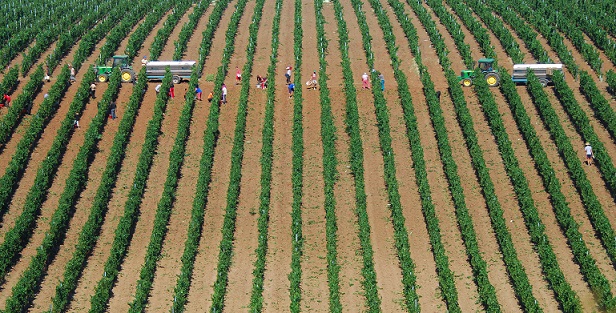
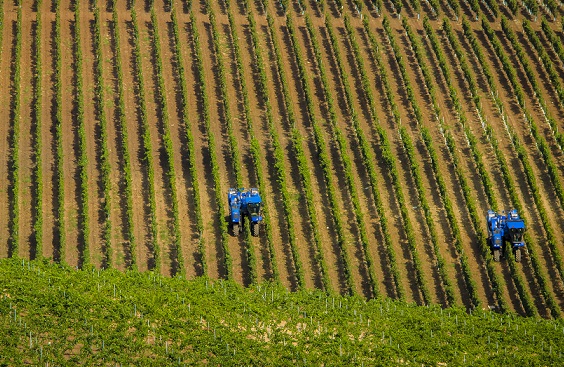
He said they do the same work in the vineyards as top Bordeaux estates. “The only things which are different are that their land costs €1.5m per hectare and they have 300 years of history behind them to promote it. The wine’s pretty good, too, sometimes. But it’s not that different.
“If the walls don’t stop you doing it and you have enough imagination to want to do it, we could make almost any kind of wine we want. The thing is to find out if someone wants to buy it. That’s the most important thing. Most wineries in Romania and other countries don’t ask that question: Am I producing something people want to buy? They just assume that if they like it personally – they like the wine and the label – that someone else is going to like it. But it’s not like that, it’s so weird what some people like.”
He's not a natural wine enthusiast but, three years ago, Cramele Recaș started producing an orange wine for Japan. It was a blend of Feteasca Alba, Tamaioasa Romaneasca, Chardonnay and Sauvignon Blanc. This year they will be producing orange varietals – a Chardonnay for the USA market, a Feteasca Alba and a Merlot – using organic grapes and no additives.
Surveying the massive factory, it looks like the last place you would expect to find an orange or natural wine.
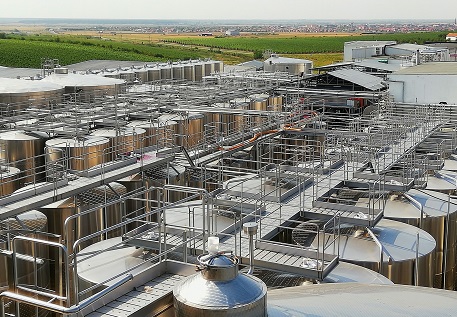
When it was launched in the Aldi supermarket chain in the UK last year, the taste, concept and £6 price tag were well received. But the winery was criticised on two counts: the use of a centrifuge to clarify the wine and the fact it was “so cheap”.
Responding to the use of a centrifuge, Philip points out: “It’s not adding anything, it’s not a chemical.”
Regarding the price, Philip said: “Why should it be more expensive, you don’t put anything in it or do anything extra to it? It’s actually the cheapest wine to make, apart from using organic grapes. All the things we put in the other wines, like yeast, enzymes, malolactic bacteria, cost a lot of money.”
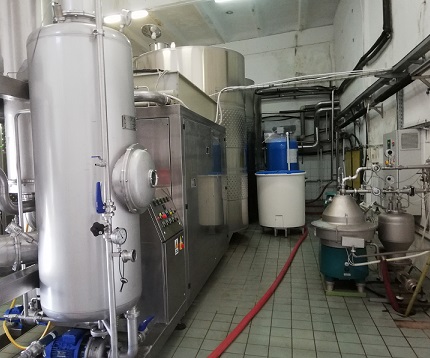
Other trends
Cramele Recaș is owned by Englishman Philip, his Romanian wife Elvira (the export director), and Gheorge Iova and Ioan Georgiu, who run the vineyards.They invested another €4m earlier this year to increase the storage and fermentation areas, acquire more processing equipment (including three OenoFlow XL machines for filtering) and expand the warehouse footprint.
Looking around the warehouse, a few trends become clear:
- England loves good value Pinot Noirs and Pinot Grigios (Cramele Recas claims to be the largest supplier of Pinot Grigio to the UK).
- Australia and South Africa also want Pinot Noirs.
- Japan loves orange wines. “They are mad about them,” Philip confirmed.
- Germany is falling for half-bottles.
- Romania wants sparkling wine or still wines from indigenous varieties.
- USA wants aromatic whites.
- South Korea likes augmented reality labels (Transylvania-based Cramele Recas has one with bats flying out of the bottle and around the phone).
- Most of the bottles heading for export have screwcaps; everything for the domestic market has cork stoppers.
Philip said it was a relatively easy adjustment as their strategy has long been to use minimal fining, stabilisation treatments and sulphur dioxide. With the white wines, the only change was from animal- to plant-based gelatine for juice clarification. “It is very slightly more expensive, but not significantly,” Philip said.
Looking at the new warehouse, with three months’ stock in it – about eight million bottles – Philip commented: “This isn’t how I saw it when I started.
“When we started out, I really thought we would be a boutique winery.”
The winery had a turnover of €42.5m last year and employs 250 people – very similar to the number it had in 2016 when it was producing 15m litres a year.


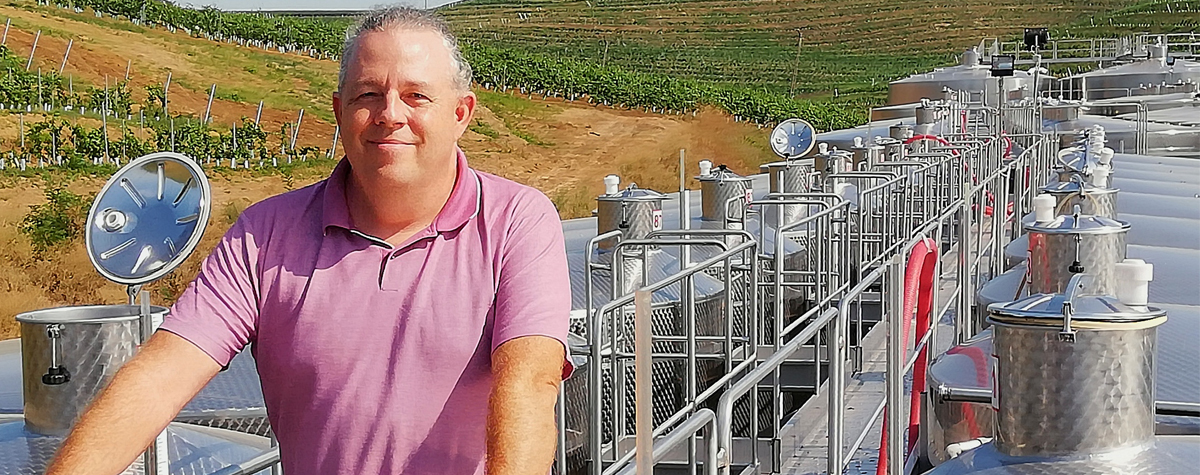








.png)









